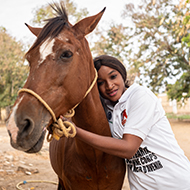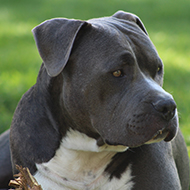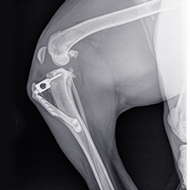Cats with higher levels of vitamin D in their blood were more likely to be alive 30 days after admission than those with the lowest levels.
Cats may hold clues to health benefits of vitamin D
Sick cats are more likely to survive if they have higher levels of vitamin D, a study by the Royal (Dick) School of Veterinary studies has found.
Published in PLOS ONE, the study suggests that cats may hold vital clues about the health benefits of vitamin D.
Researchers say that cats could prove useful for investigating the complex link between vitamin D and a range of health problems that also affect humans.
Furthermore, the finding may help vets give owners better advice about their pets' prognosis.
The researchers took blood samples from 99 pet cats that were admitted to the University's small Animal Hospital with life threatening conditions.
With permission of the owners, the team checked the levels of vitamin D in the cats' blood on admission.
They found that cats with higher levels of vitamin D in their blood were more likely to be alive 30 days after admission than those with the lowest levels.
The finding could help vets predict which animals are more likely to survive their illness.
The study also highlights the need to understand more about whether vitamin D influences the risk of cats developing a disease, and how it impacts on the outcome of their illness.
Dr Richard Mellanby, head of small animal medicine at the Royal (Dick) School, said: “At the moment, it is difficult for veterinarians to offer accurate prognostic information to the owners of sick cats. Our study demonstrates that measuring a key vitamin D metabolite in the blood predicts disease outcome with a much greater degree of accuracy than many other many other widely used measures of disease severity.
“It is important to remember that too much vitamin D can be poisonous to cats. Most cat foods contain a standard amount of vitamin D and there is no need for owners to add supplements."
Vitamin D is found in oily fish, cheese, egg yolks and is available as a supplement. It has been linked to helping a range of health problems in people, including multiple sclerosis, cancer and infections.
Humans can produce vitamin D in their skin after exposure to the sun, but cats can only obtain it through food.
Scientists say that the research provides the foundations for studies to investigate whether adding vitamin D to diets of sick cats improves their chances of survival.
The results could also help to inform clinical trials of vitamin D supplements in humans.







 Birmingham Dogs Home has issued an urgent winter appeal as it faces more challenges over the Christmas period.
Birmingham Dogs Home has issued an urgent winter appeal as it faces more challenges over the Christmas period.
